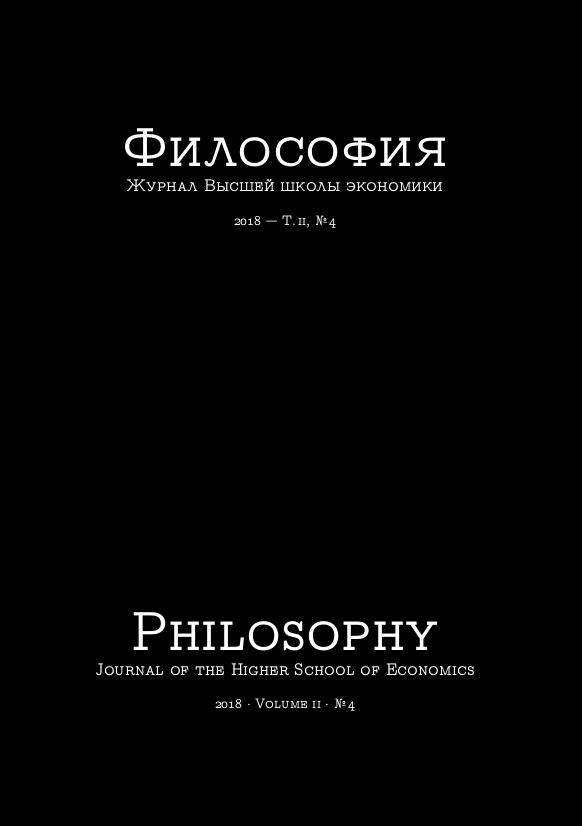Im-Possibility as Amechania
Vladimir Bibikhin’s Phenomenology of Death
Abstract
This paper examines the conceptual transformations of Martin Heidegger’s phenomenology of death in Vladimir Bibikhin’s philosophy. For this purpose, the author analyzes Bibikhin’s phenomenology of death in the context of the ontology of time worked out in Bibikhin’s lectures “(It’s) Time.” The key difference between Bibikhin’s ontology and the one from “Being and Time” is the approximation of the past and the future in “(It’s) Time” based on Bibikhin’s interpretation of these tenses as the restrictions of human activity. The limit of this activity is death, in which, according to Bibikhin, “I will not be able to do anything.” Moreover, Bibikhin pulls together death and childhood memories as well as Heideggerian concepts of understanding and mood. This trends are most noticeable in the “Early Heidegger” workshop, in which Bibikhin uses certain excerpts from Heidegger’s works to ground the concept of death as impossibility of action. The comparison of Bibikhin and Kojève’s phenomenology of death shows that Bibikhin eliminates the reference to non-being from the concept of death. Nevertheless, Bibikhin’s thought continues some patterns of Heidegger and Kojève’s atheistic phenomenology. For instance, Bibikhin reduces the transcendence to the existential modes, in which it can be given. Therefore, Bibikhin in several cases describes the death not in philosophical, but in religious terms.






